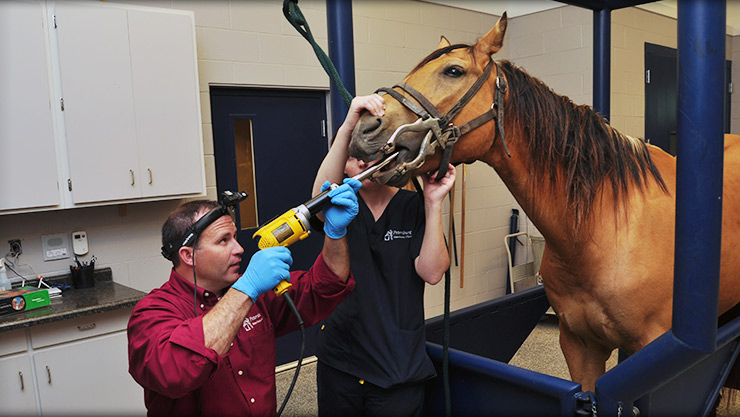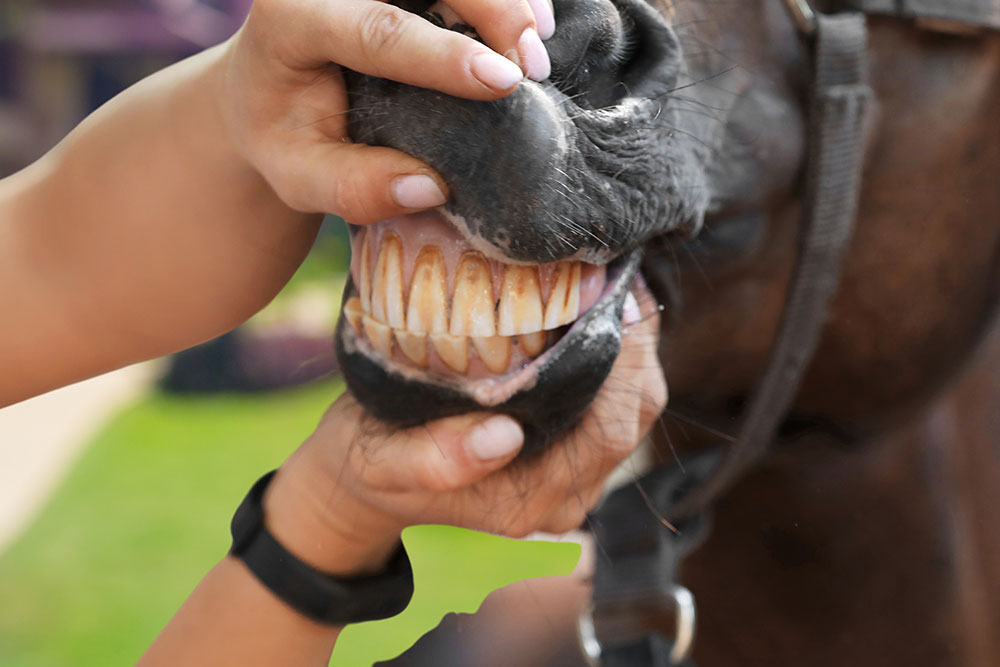Understanding the importance of horse dental exams by age is crucial for ensuring the health and well-being of these majestic creatures. Just like humans, horses require regular dental care to maintain their overall health. This article delves into the various aspects of horse dental care, focusing on how age influences dental health and the specific needs at different life stages.

Why Are Dental Exams Important for Horses?
Regular dental exams are essential for horses because dental issues can lead to severe health problems. These issues can affect their ability to chew properly, leading to weight loss and nutritional deficiencies. Moreover, untreated dental problems can cause pain and infection, significantly impacting a horse’s quality of life.
The Basics of Equine Dental Anatomy
To appreciate the importance of horse dental exams by age, it’s vital to understand the basics of equine dental anatomy. Horses have unique dental structures that differ significantly from humans. They have a total of 36 to 44 teeth, which include incisors, premolars, molars, and sometimes canine and wolf teeth.
Understanding Horse Teeth
Horse teeth are hypsodont, meaning they continuously erupt throughout their lives. This continuous growth compensates for the wear and tear caused by their fibrous diet. Understanding the wear patterns and growth of horse teeth is essential for performing effective dental exams.
Age-Specific Dental Needs
The dental needs of horses change as they age. Let’s explore the specific requirements at various life stages.
Foals and Young Horses (0-5 years)
Foals and young horses experience rapid dental changes. At this stage, they have deciduous, or ‘baby’ teeth, which will eventually be replaced by permanent teeth. Regular exams are necessary to monitor the shedding of baby teeth and the eruption of permanent teeth.
Adult Horses (6-15 years)
Adult horses require routine dental exams to address issues like sharp enamel points, hooks, and ramps. These dental abnormalities can hinder their chewing efficiency and cause discomfort. Routine floating, a process of filing down sharp teeth edges, is often necessary.
Senior Horses (16+ years)
Senior horses face unique dental challenges. Their teeth may become worn down, loose, or even fall out. It’s essential to adjust their diet and dental care routine to accommodate these changes and ensure they can still chew and digest their food properly.
The Process of a Horse Dental Exam
A comprehensive dental exam involves several steps to assess and address the horse’s dental health.
Initial Assessment
The dentist or veterinarian will begin by observing the horse’s head and mouth for any external signs of dental issues, such as swelling or discharge.
Oral Examination
Next, a thorough oral examination is conducted using a speculum to hold the horse’s mouth open. This allows the dentist to inspect each tooth, check for sharp edges, and identify any abnormalities.
Floating
If necessary, floating is performed to smooth out sharp enamel points and correct dental misalignments. This process helps improve the horse’s ability to chew and prevents discomfort.
Signs Your Horse Needs a Dental Exam
Recognizing when your horse requires a dental exam is crucial. Some common signs include:
- Difficulty chewing or dropping food
- Weight loss despite a healthy diet
- Bad breath or excessive salivation
- Facial swelling or nasal discharge
Preventative Care and Maintenance
Preventative care is key to maintaining your horse’s dental health. Regular dental exams, a balanced diet, and appropriate dental care can prevent many common dental issues.
Dietary Considerations
Feeding your horse a balanced diet rich in fibrous foods can help maintain healthy teeth. Avoid feeding excessive amounts of sugary treats, which can contribute to dental decay.
Regular Check-Ups
Schedule regular dental exams with a qualified equine dentist or veterinarian. These professionals can catch and address dental issues early, preventing more significant problems down the road.
Common Dental Problems in Horses
Understanding common dental issues can help horse owners and caretakers address problems promptly.
Sharp Enamel Points
Sharp enamel points can develop as horses chew, leading to discomfort and ulcers in the mouth. Regular floating can prevent these issues.
Hooks and Ramps
Hooks and ramps are dental abnormalities that can prevent proper jaw alignment. They require dental intervention to correct.
Wave Mouth
Wave mouth occurs when the teeth wear unevenly, leading to a wave-like appearance. This condition can affect chewing efficiency and requires dental correction.
The Role of the Equine Dentist
Equine dentists play a crucial role in maintaining and improving horse dental health. They have the expertise to perform thorough exams, diagnose dental issues, and provide necessary treatments.
Qualifications and Training
Qualified equine dentists undergo extensive training and certification to ensure they provide the best care for horses. It’s essential to choose a dentist with the proper credentials and experience.

FAQs
How often should a horse have a dental exam?
Most horses should have a dental exam at least once a year. However, young and senior horses may require more frequent check-ups to address specific dental needs.
Can I perform a dental exam on my horse?
While you can conduct basic checks, it’s essential to have a qualified equine dentist or veterinarian perform thorough exams to diagnose and treat any issues properly.
What are the signs of dental problems in horses?
Signs of dental problems in horses include difficulty chewing, weight loss, bad breath, and facial swelling. If you notice any of these symptoms, schedule a dental exam promptly.
For more information on horse dental care, visit UConn’s Equine Dental Publication and Horse Dental Aging Guide.
This article contains affiliate links. We may earn a commission at no extra cost to you.
